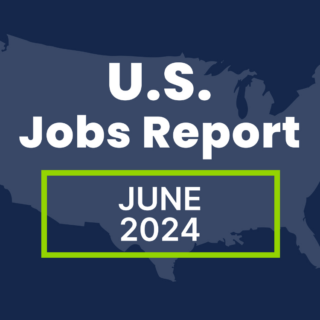The Office for National Statistics released its September Labour Market Bulletin which reports on May, June and July 2018. In those three months, 3,000 jobs were added to the UK economy with the unemployment rate holding steady at 4.0 per cent. The report shows that average weekly earnings for UK employees in nominal terms (that is, not adjusted for price inflation, minus bonuses) increased by 2.9 per cent over the last year.

The Numbers
3,000: The economy added 3,000 jobs over the May-July 2018 period.
4.0%: The unemployment rate remained unchanged from the previous quarter.
2.9%: Wages (excluding bonuses) increased 2.9 percent over the last year.
The Good
Wages rose faster than prices in the last three months, which beat analyst expectations. Wages, excluding bonuses, were up 2.9 per cent, against an inflation rate of 2.5 per cent, according to labour market statistics. The number of people working rose by 3,000 in the past three months to 32.4 million. Over the same time period, the number of job vacancies rose to 833,000. This is the highest number since these records began.
The number of unemployed people in Britain fell by 55,000 to 1.36 million, keeping the jobless rate at 4 per cent which is the lowest in more than 40 years. Compared to the same time last year, 261,000 more people in the UK are working. Youth unemployment has declined to the lowest rate on record.
The Bad
Despite the recent wage growth, average weekly wages are still lower than the 2008 levels achieved before the financial crisis, remaining £31 below the pre-crisis average. The annual rate of growth in pay is still lower than the averages before the financial crisis when wages often rose by about 5 per cent.
Productivity also remains lower than pre-recession levels. As Bloomberg reports:
“Without a significant improvement, firms may find their profit margins coming under pressure and increase prices to compensate. Flash figures for the second quarter show output per hour rose 0.4 per cent, leaving productivity up just 1.5 per cent on the year — below the rates enjoyed before the financial crisis.”
The Unknown
The relatively low number of jobs added may be an indication that the recent surge in jobs may have leveled off. Uncertainty over Brexit may be having an impact on workers who might otherwise move to new positions to increase their income.
Samuel Tombs, chief UK economist at Pantheon Macroeconomics, noted in the Guardian that while the strongest pay growth was among people moving jobs, workers may be increasingly opting to stay put while the risk lingered of no deal with the EU.“It would be a mistake to extrapolate the recent pickup in wage growth [into a trend],” he said.


